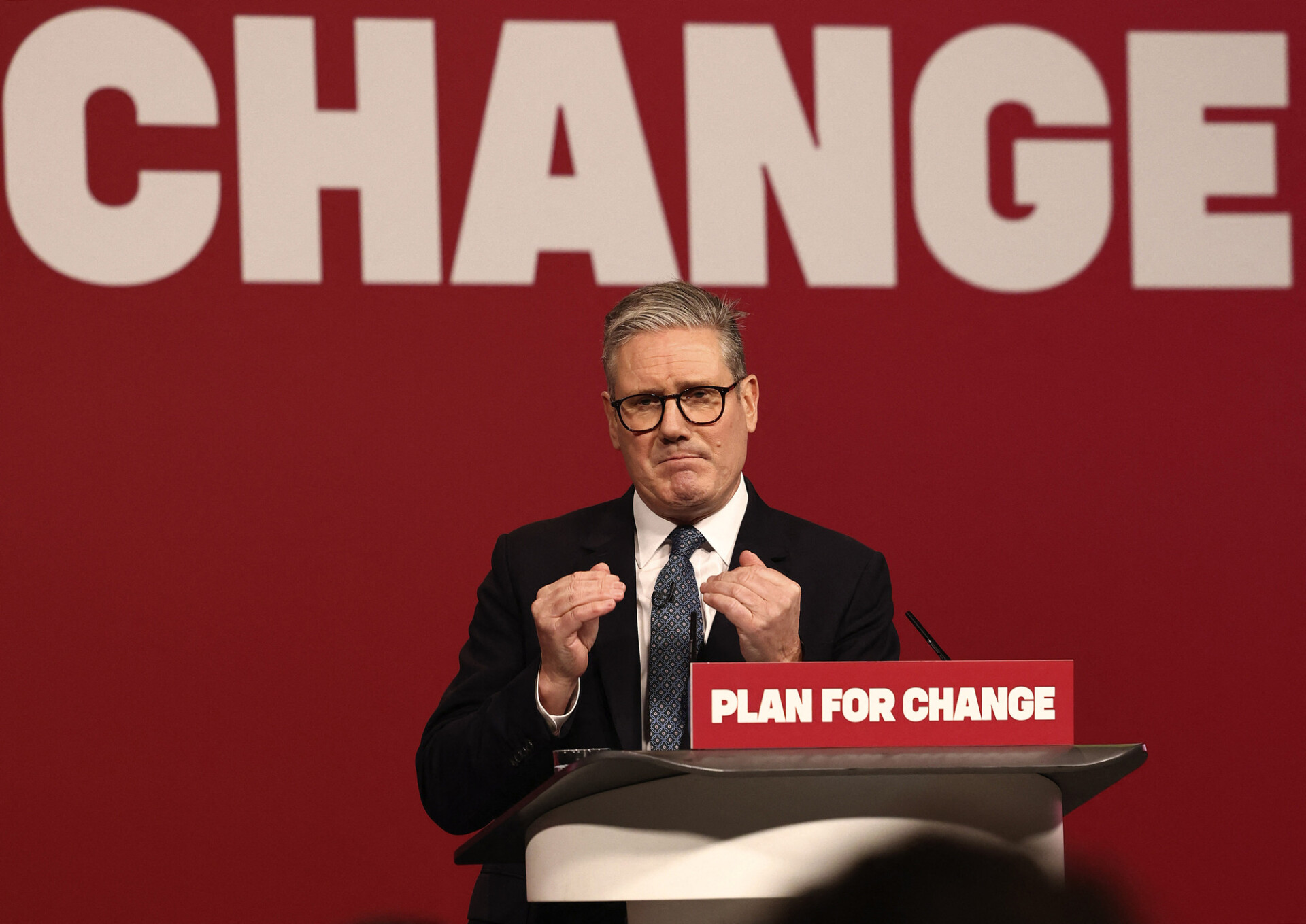Something interesting is happening to Labour. For the past few months, Keir Starmer has sought to outflank the Conservatives on the question of immigration — and almost no one inside his party has criticised him.
Outlining his “plan for change” yesterday, Starmer began by arguing that the previous Conservative government had “opened up the borders, deliberately, to cover up the extent of their economic stagnation”. This, he said, was “absolutely unforgivable”.
Starmer’s line of attack is part of a wider strategy to shift the Labour Party’s attitude on immigration. After the latest migration figures showed the annual net flow into the country had reached more than 900,000 a year, he attacked the Conservatives’ “open borders experiment” on the country. Labour then followed this up with a video posted on X earlier this week accusing Kemi Badenoch of personally lobbying for open borders, based on footage of her thanking then-Home Secretary Sajid Javid for listening to her pleas to remove the annual limits on work visas.
What is so striking about Starmer’s strategy is not so much the tone or even the content, but how little criticism it has encountered from a Labour Party which has spent decades making the opposite case, championing the benefits of immigration socially and economically. Migration was not a way to “cover up economic failure”, as Labour now argues, but a lever to improve economic growth for everyone.
Yes, Diane Abbot has been critical. “Macron built up the far right and attacked the left,” she wrote on X yesterday. “He pursued austerity and copied Le Pen’s anti-migrant rubbish. It has ended in disaster for him and chaos for France. Lessons to be learnt.” Kim Johnson, the Labour MP for Liverpool Riverside, also described Starmer’s decision to hold talks over immigration with Italian Prime Minister Giorgia Meloni as “disturbing”, while another Labour MP anonymously told the Guardian that the party leader’s relationship with Meloni was “shameful”. Yet the criticism was neither widespread nor substantive.
Part of the reason for this is that Starmer first cleared the ground for these attacks with his speech to the Labour Party conference earlier this year, when he made the traditional social democratic argument for controlled migration. The Tories, Starmer declared, could not reduce immigration, because they were “the party of the uncontrolled market”. As such, only Labour could ever really “take back control”.
It was a neat argument, with some merit. At heart, European social democracy is really just a political project to impose constraints on the market economy in order to protect the poor from unfair competition and being forced to work for less. That is the theory, anyway. It’s not hard to see why the trade union movement, for example, would oppose sudden increases in competition, but for much of the past 25 years the Labour Party has actively dissented from this kind of statism in favour of a “flexible” labour market. Starmer’s shift is not “to the Right”, but instead against the old Blairite consensus.
The problem he now faces, however, is that the level of migration today is 10 times higher than in 1997. In response, opposition has also become more radical, with Reform UK demanding “net zero” immigration, and some of its supporters now talking openly of “remigration”.
The irony of all this is that Reform is now so confident on the issue of migration that it plans to actively avoid talking about it over the next few months in a deliberate attempt to attract new voters. As a result, we should prepare for the strange reality that in the coming months the party banging the drum for the benefits of cutting migration may not be Reform or the Tories, but Labour.











Join the discussion
Join like minded readers that support our journalism by becoming a paid subscriber
To join the discussion in the comments, become a paid subscriber.
Join like minded readers that support our journalism, read unlimited articles and enjoy other subscriber-only benefits.
Subscribe